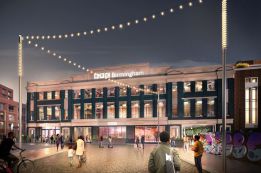Campaign statement regarding the cancellation of 'Doctors'
Since the announcement in October 2023 that the highly rated, popular daytime drama Doctors was to be cancelled in early 2024, we have appealed to BBC senior management on 3 occasions, asking them to review this calamitous decision.
We are currently awaiting a reply to our final appeal, although since the deadline for the last day of filming has now passed, we can anticipate what that reply might say.
To put that into context, it is getting more viewers than most non-news daytime TV programmes on either BBC1 or ITV1. More than: Homes under the Hammer; Politics Live; Escape to the Country; Money for Nothing; Rip-off Britain; Lorraine; Good Morning Britain, Tenable and many others - both daytime and prime time.
Indeed, it usually gets more viewers on its day of broadcast than anything shown on Channel 4 or 5 all day. Even BBC2 only gets higher ratings with one programme - shown in the evening.
Considering the very small drama budget that Doctors was made for, it's slightly ironic that the only non-news daytime programme on British TV with a higher rating is Bargain Hunt.
Doctors has been, and remains highly successful despite receiving virtually and curiously no on-screen promotion whatsoever from BBC Continuity! It provided full time employment for over 100 cast, crew and writers in the Midlands. These jobs have now gone.
Vague promises have been made that the budget for the programme will be spent in the Midlands, but with no specifics. All of this is on top of the unusual position of the BBC as a public body, with its inconsistent approach to where it spends licence fee payers' money. See the chart below.
The BBC has announced that it is to move to a new regional office in Birmingham city centre in 2027, although it is not clear if this will result in a substantial realignment of its organisation and production. When questioned, a previous BBC manager in the Midlands stated that the new office will not contain a network TV studio because... studios are not needed! Based on the current state of BBC production and commissions in the region, perhaps it is true to say that it does not need studios... in the Midlands.
We acknowledge the BBC is under financial pressure but we are also aware that the Midlands has already seen the biggest reductions of BBC production activity and facilities in the UK.
The region is not adequately represented in BBC production and output, and certainly not in any way that is comparable with any other part of the country.
We do not believe that the Midlands should be on the receiving end of any further cutbacks to the BBC’s presence and its facilities. We have already shouldered more than our fair share.
To lose a highly successful and much appreciated daytime drama, and a small highly efficient production centre - the only BBC studios production unit in the Midlands - is an extraordinarily bad decision. The implications extend beyond one programme.
We believe that the BBC needs a much greater production presence in the heart of England if we are to save public service broadcasting and public funding in the future. It is impossible to defend such public funding from here when BBC coverage and representation is as poor as it has become. There should be more of the BBC here, not less.
Campaign for Regional Broadcasting Midlands. March 2024







